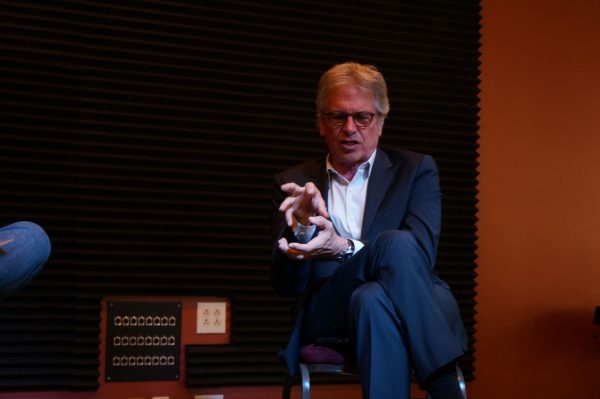Faculty Voices Concerns on Staff Departures over Summer

During a public meeting on Tuesday, June 20, President Jane Fernandes announced that seven employees would be leaving Guilford as part of a reduction-in-force due to budgetary constraints.
The departing employees were notified individually after this statement was issued to the group.
“To protect privacy, we did not identify those individuals,” said Jane Fernandes in an email interview with The Guilfordian. “We tried to time the individual notices to occur as soon as possible after the public meeting.”
Announcing a reduction-in-force in this way has been a point of concern for several faculty members. A faculty member who declined to be named described feeling that alerting employees in this manner was unnecessarily harsh.
Other faculty members also cited grievances with the administration’s communication.
“We don’t know what’s happening to people,” said Associate Professor of Education Studies Julie Burke. “What would be helpful in the community would be for us to understand why people are no longer here, and at the very least to be able to honor their contribution to the community and to say goodbye to them.
“And for them to not just one day be here and one day be gone.”
According to several staff members, over the past few years, there have been an increased frequency in similar departures.
“I think in one form or another, (staff reductions have happened) every year for the past four years,” said Mark Justad, director of the center for principled problem solving and religious studies.
The administration has cited financial restrictions as the primary reason for these occurrences.
“Matching the size of faculty and staff with operational demands and budget needs is a natural evolutionary occurrence throughout all of higher education,” said Fernandes in an email interview. “On an annual basis, we must align expenses with revenues. In recent years, that has meant personnel adjustments.”
Interviewed faculty members also recognized that financial restraints can lead to challenging situations on a university scale.
“It’s difficult for institutions with competing goods, the need of trying to be good stewards, not spending money you don’t have. But also feeling a sense of obligation to what I’m sure are good employees and good people who are being put in a difficult economic situation,” said Justad. “I think an institution wrestles with that … economic reality.”
Some faculty members, however, reported feeling significant differences between the most recent reductions and those of the past.
“A couple of years ago, over the summer, a whole lot of people were let go quite suddenly,” said Burke. “At least at that time…(when someone) called us together to meet … to hold those people in the light, there was some recognition. But at this time, there’s a lot of people … who don’t know who’s here and who’s gone.”
Many faculty and staff concerns stem from the lack of formal appreciation for departing employees. Although some home departments organized farewell celebrations, no official recognition by the administration was given.
“Recognize the people who are going, at least inform people of the criteria and the choice of positions maybe even by name and not by title,” said Burke. “Without belying confidentiality, I think there’s a way to say ‘these are the considerations in these decisions.’”
Recognizing that announcing decisions of this nature is difficult, faculty and staff hope to see changes in how these decisions are communicated.
“As an employee, I would have appreciated more information,” said Justad. “But I am also aware that personnel issue is private on some level.”
Burke expressed a similar sentiment.
“It’s a hard issue on many levels,” said Burke. “All of the variables can’t be explained and (shouldn’t be), but there needs to be a better level of communication than there is.”








